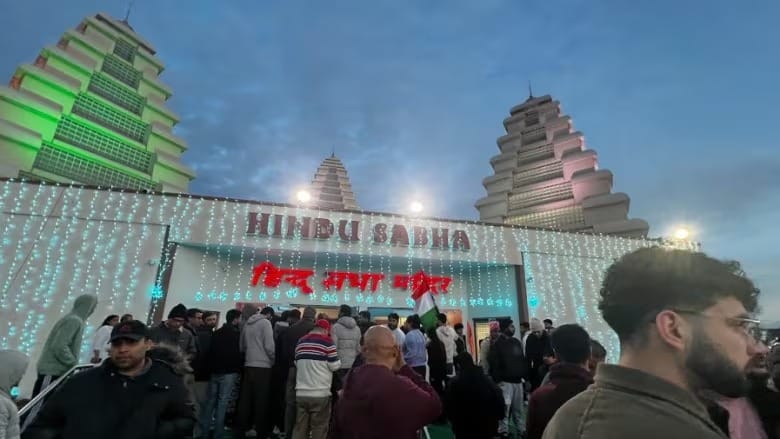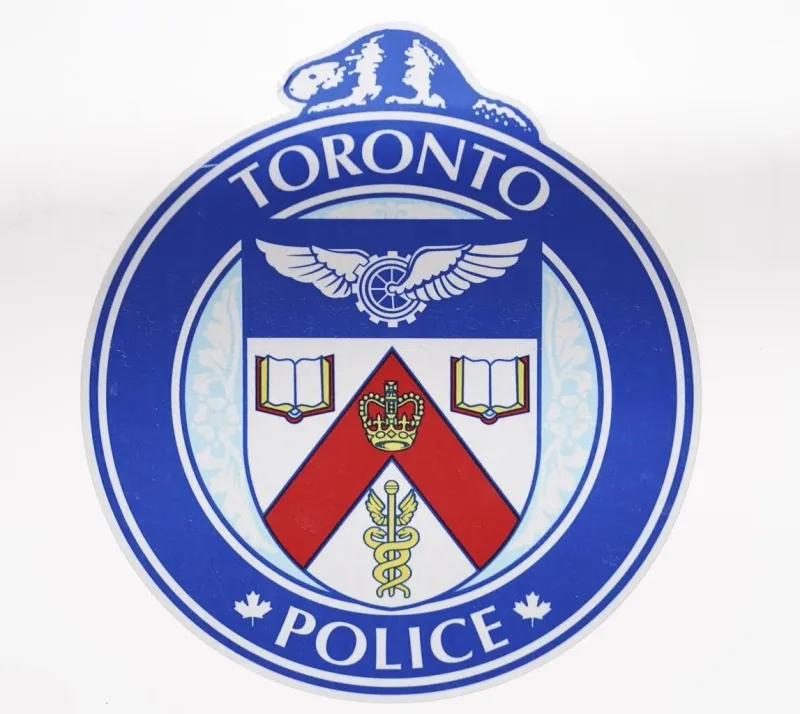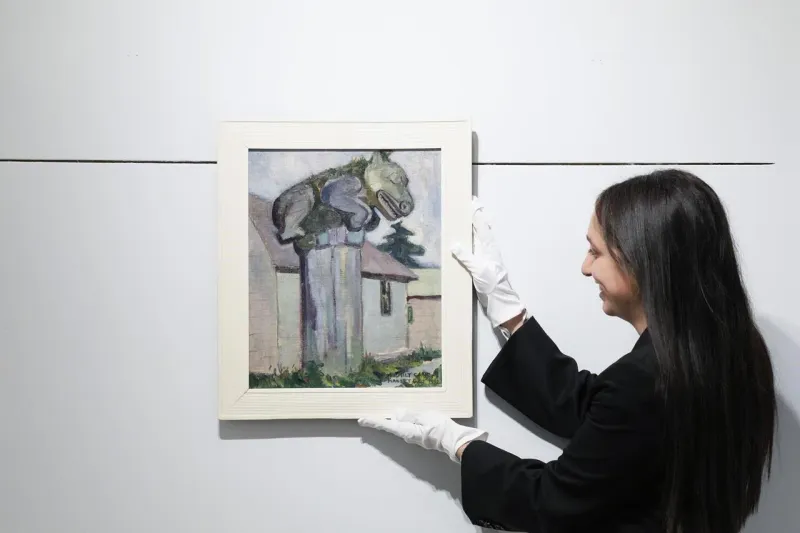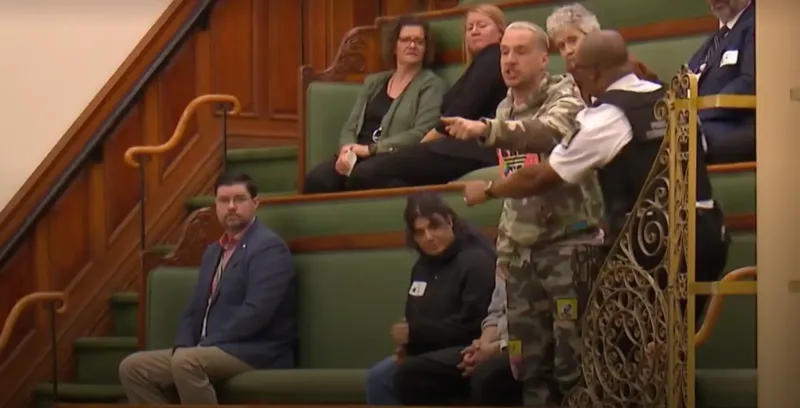3 arrested and charged after protest at Brampton Hindu temple, police say
Unverified videos appear to show an altercation involving protesters outside the temple

Peel Regional Police announced that three individuals have been charged after a protest outside a Hindu temple in Brampton on Sunday, which political leaders across Canada widely condemned.
In a brief statement posted early Monday on X (formerly Twitter), police did not specify the nature of the charges or identify those charged. They mentioned, however, that they are still investigating “several acts of unlawfulness” and may release additional information.
The violence at the Hindu Sabha Mandir in Brampton this afternoon is completely unacceptable and must be condemned. No one should feel unsafe in their place of worship.
— Doug Ford (@fordnation) November 3, 2024
Thank you to @PeelPolice for their quick response and for helping to keep our communities safe.
Social media videos from the event appear to show demonstrators holding banners supporting Khalistan, a proposed independent Sikh homeland in northern India, and clashing with others, some displaying India’s national flag. These videos depict fistfights and people hitting one another with poles on what looks like the grounds around the Hindu Sabha Mandir temple, though CBC Toronto has not independently verified the events in the videos.
Police reported that the protest later shifted to two other locations in Mississauga, where additional demonstrations occurred. On Sunday afternoon, police acknowledged the protest and increased their presence at the Hindu Sabha Mandir temple to ensure public order and safety.
The acts of violence at the Hindu Sabha Mandir in Brampton today are unacceptable. Every Canadian has the right to practice their faith freely and safely.
— Justin Trudeau (@JustinTrudeau) November 3, 2024
Thank you to the Peel Regional Police for swiftly responding to protect the community and investigate this incident.
Every Canadian must be free to visit their place of worship in peace.
— Jagmeet Singh (@theJagmeetSingh) November 3, 2024
I unequivocally condemn the acts of violence at the Hindu Sabha Mandir.
Violence anywhere is wrong. I join community leaders in calling for peace.
Completely unacceptable to see violence targeting worshippers at the Hindu Sabha Mandir in Brampton today.
— Pierre Poilievre (@PierrePoilievre) November 3, 2024
All Canadians should be free to practice their faith in peace. Conservatives condemn this violence unequivocally. I will unite our people and end the chaos.
Chief Nishan Duraiappah posted on X that while peaceful protest is respected, violence and criminal behavior will not be tolerated. He warned, “Those that do participate in this activity will be pursued, arrested and charged.”
Brampton Mayor Patrick Brown condemned the violence, stating that those responsible should face maximum legal consequences. "I am disappointed to hear about acts of violence outside of the Hindu Sabha,” he said, emphasizing Canada’s commitment to religious freedom and the right to safety in places of worship. Brown also mentioned plans to introduce a motion at Brampton city council to consider restricting protests near places of worship.
Premier Doug Ford called the incident “unacceptable” in a Sunday evening post on X. Prime Minister Justin Trudeau, Conservative Leader Pierre Poilievre, and NDP Leader Jagmeet Singh were among other politicians who expressed their condemnation on social media.
Tensions between Canada and India have been high, partly due to allegations of violence against Canadian Sikhs. Ottawa has accused India’s home minister of orchestrating attacks on Sikh activists in Canada, allegations India denies.
The group Sikhs for Justice said the Khalistan supporters were protesting a planned visit by Indian consulate officials to provide services, such as assistance with pension access for seniors. The group claimed Hindu nationalists instigated the clashes and alleged that Indian officials use religious site visits to identify informants to monitor Sikh separatists. Sikhs for Justice has called for Indian consular officials to be restricted to diplomatic premises, arguing that visits to external sites “directly endanger the safety and security of pro-Khalistan citizens in Canada.”
In response, the Indian high commission in Ottawa condemned the violence, stating it was disappointing to witness protests during “routine consular work.” They added that future temple visits would only proceed if local authorities provided adequate security to ensure safety for officials, organizers, and attendees.
Liberal MP Chandra Arya criticized "Canadian Khalistani extremists," alleging they are targeting Hindus and “getting a free pass in Canada.”
The clashes occurred during Diwali celebrations and amid escalating Canada-India tensions. Last month, Canada expelled six Indian diplomats, accusing them of gathering intelligence on Canadians involved in the pro-Khalistan movement and passing this information to criminal gangs targeting these individuals. India has long claimed that Canada harbors pro-Khalistan extremists it has sought to extradite, although Canadian officials assert these requests often lack sufficient evidence.
The unrest is not limited to Ontario. Last Friday, a British Columbia Supreme Court judge approved a buffer zone around one of the province’s largest Sikh temples in anticipation of potential confrontations between protesters and Indian consular officials. The temple leaders had requested the buffer, expecting “intense protests” at two upcoming Indian consular events, often referred to as “consular camps.”





